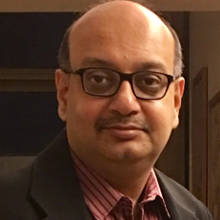[From Pixabay]
On February 9, when Dr Santrupt Misra announced he was formally joining the Biju Janata Dal (BJD) as its national spokesperson, there was intense speculation that the Aditya Birla Group veteran may be nominated to the Rajya Sabha. That eventually proved to be untrue. But now, there is a distinct possibility that the party may field him as a candidate for the upcoming Lok Sabha elections in the state. Given the elections are barely a few weeks away, a final decision could be literally days away.
In the Pauri Garhwal Lok Sabha constituency in Uttarakhand, Manish Khanduri has his hands full, campaigning for Anil Baluni, a new BJP candidate there. Even till two weeks ago, Khanduri seemed all set to bag a Congress ticket from the same constituency, till he resigned for personal reasons and decided to hitch his wagon with the BJP. He did not ask for a ticket from the BJP. None was offered either, except maybe for an organisational role in the party in Delhi sometime in the future.
The news of Khanduri’s resignation from the Congress was greeted with a deep sense of disappointment among our journalist community, especially those of us who had worked closely with him, including starting our careers at Business Standard in the early nineties.
Dr Misra and Khanduri’s political journeys can’t obviously be compared directly.
Dr Misra is a stalwart from the corporate world with an outstanding track record of transformation. He played a key role in driving the transformation of the Aditya Birla Group, alongside chairman Kumar Mangalam Birla. Balancing continuity and change in a group with a massive legacy was a formidable challenge. Dr Misra instituted new people and organisation policies, including dismantling the cradle-to-grave and kith and kin policies, drove tricky CEO succession on more than one occasion at some of the flagship companies like Hindalco and Grasim, and attracted a new breed of top notch professionals from multinationals to augment the leadership pipeline in the group.
In 2009, Dr Misra switched to a new business role, which set tongues wagging. Most people expected him to fail as CEO of the global carbon black business. But he proved them wrong. And in 2018, he took on a new role as the CEO of the group’s chemicals business, without any domain expertise in chemical engineering. He earned his spurs in the new business yet again. He succeeded by not being embarrassed to continually ask questions, till he understood the basics. It was the same story on Novelis, the group’s $6 billion mega global aluminium acquisition in the US in 2007. While the business teams struggled to gain acceptance with the much larger Novelis team, Dr Misra was able to push through his own HR representation from India at Atlanta.
Khanduri, on the other hand, took the plunge into politics at a slightly younger age. In 2019, he made his move, after a successful career, first as a business journalist at BS and BW and later, armed with an MBA degree from Kellogg, as a senior business executive in global media companies like CNN and Meta.
So what’s the upshot? Shortly after he announced his transition, Dr Misra faced a whole barrage of questions from peers in the corporate world. They wanted to know what it would take to shift to public life. That’s not surprising, given that this is now viewed as aspirational and corporate life can appear shallow and unfulfilling after a certain point.
There is a perceived thrill in making a bigger impact at a national level. So what’s holding back people? Most middle class Indians tend to carry a dim view of politics. I keep hearing the refrain that more upright and competent corporate leaders need to join politics for India to have a better chance of cleansing herself of corruption and also in building a resurgent nation. Of course, it is another matter that most people would prefer that someone else takes the risk of jumping into public life, rather than do it themselves. A few though, have the intent and are serious, but walking away from the status, the position and money of a corporate job is seldom easy.
In 2009, Nandan Nilekani remains a good example of a business leader who successfully led the creation of UIDAI, an institution better known for delivering Aadhaar for more than a billion Indians. He held the rank of a Cabinet minister in the UPA-II government headed by Prime Minister Manmohan Singh.
But when Nilekani tried entering electoral politics, standing as a Congress candidate from Bengaluru South in the 2014 Lok Sabha elections, he lost heavily and later decided electoral politics wasn’t exactly his cup of tea.
Despite the fact that it meant working with a team of bureaucrats, running UIDAI was a lot simpler for a technocrat like Nilekani. It was the same story for Subroto Bagchi, who joined the Odisha government in 2016, in a Cabinet rank, to head the state government’s Skilling Mission.
Of course, the transition is somewhat easier if you’ve dabbled in local politics or at least seen it from up close and personal. Both Khanduri and Dr Misra have had a family background in politics when they were young. Khanduri campaigned for his father Major General BC Khanduri, who served as a minister in the Vajpayee government and had a squeaky clean reputation of building the Golden Quadrilateral project. He also served as a BJP chief minister of Uttarakhand.
Dr Misra’s family too was deeply involved in public life. His father’s elder brother was a leading trade unionist, affiliated to the Communist Party of India (CPI). He himself fought union elections as a young student.
His decision to join public life was delayed by more than a decade, as his corporate commitments did not allow him to jump in—once in 2013 and again in 2019. This time he realised it was now or never. His children were well-settled, and he had achieved everything he possibly could—and there was no other mountain left to climb. This transition will once again test his leadership skills.
Khanduri hoped to use his father’s goodwill to build his political base. But in 2019, he lost the Lok Sabha elections on a Congress ticket. That didn’t deter him. And he doggedly continued his on-ground work in the state. He also helmed a key communications role during Rahul Gandhi’s Bharat Jodo Yatra, walking for almost the entire stretch. In the process, he got close to the Gandhi scion.
Yet politics sometimes throws up curve balls that test the resilience of even a hardened corporate warrior.
As the 2024 Lok Sabha elections drew near, Khanduri knew there was no way he could win the seat. BJP is virtually invincible, backed by a formidable, disciplined cadre based party. (Take a look at this sharp political analysis on Uttarakhand politics in The Northern Gazette. It talks about how the Congress is literally conceding a complete walk-over to the BJP in the Lok Sabha polls.)
What’s more, while he was campaigning for the Bharat Jodo Yatra, the local Congress leadership in the state was doing everything in its power to undercut him. The party apparatus was instructed not to support him on the ground. Now, that was the nature of the beast. Knowing the reality, Khanduri asked for a middle level role at the party apparatus in Delhi that would give him a modicum of respect, even if he lost for the second time. Everyone he spoke to, including party seniors—KC Venugopal and Jairam Ramesh, among others—said this would happen. But while it was promised, there was no real headway. This stasis dragged on endlessly, with barely a month to go for the general elections. Completely frustrated, he eventually put in his papers on March 8. And switched off his phone.
He now has his task cut out to build his reputation in a new environment. Unlike the Congress, the good news is that the BJP is willing to bring in fresh faces and deal ruthlessly with non-performing incumbents. The fact that the party has dropped two sitting and former chief ministers—Ramesh Pokhriyal Nishank and Tirath Singh Rawat—is evidence that it means business, which was unthinkable in the Congress.
He has the option to play a supporting role in his sister Ritu Khanduri Bhushan’s political career.
As the current speaker in the state Assembly, she is seen as a rising star in the BJP state politics and a potential chief ministerial candidate in future, if she stays the course.
During his long tenure at the Aditya Birla Group, Dr Misra would have got enough perspective into state level politics, in a state like Odisha. The group had significant investments in the state. And Dr Misra had built relationships at multiple levels.
One thing was certain: BJD wasn’t a monolithic party. Naveen Patnaik has been able to shape its culture through his own humble leadership style and also prioritised development, ahead of merely focussing on winning elections. Despite winning the Assembly elections thrice successively, arrogance had still not crept in. Unlike the Trinamool Congress, the BJD has refrained from confrontational politics. It has stuck to its philosophy of cooperative federalism.
Dr Misra has had to expect that roles tend to be somewhat open-ended in politics, compared to the more structured corporate environment. But the good news is that the party has so far wisely used him for selective, high value engagements. In his initial few weeks, Dr Misra has used his business skills to completely revamp the party’s digital identity and website in a matter of weeks. The team was tasked with reviewing the best political party websites across the world, engaging with BJD parliamentarians and other stakeholders and delivering in a time-bound manner. He was also handpicked to represent the party before the Chief Election Commissioner last week.
Of course, for any transition, there is a process of letting in—and letting go. Dr Misra is aware that he will deal with a diverse set of stakeholders, far more varied than his corporate stint. Besides, he needs to give up his obsession with schedules and calendarising work, and be flexible and learn to go with the flow.
The sheer range of assignments in the corporate world has also prepared him to be adaptive. But in the fast changing political environment, there is plenty of scope for the occasional misstep. Especially when one is fighting for elections.
That’s partly why he has built a group of advisors in the state, who keep him grounded and help him avoid any debilitating mistakes that could derail his fledgling career in public life.
(A shorter version of this Strategic Intent column was first published in Business Standard)

